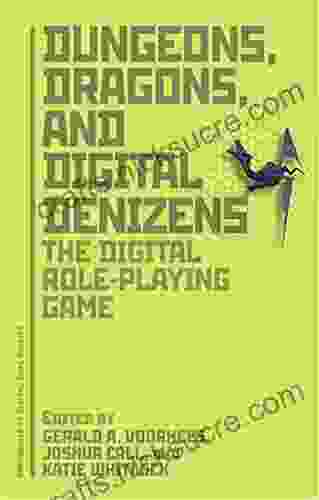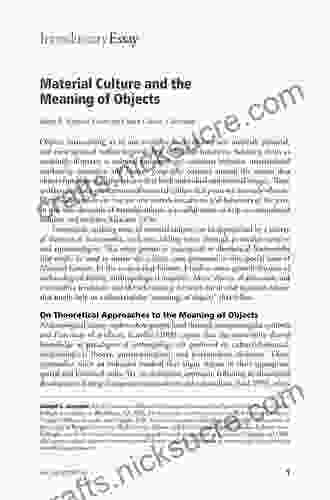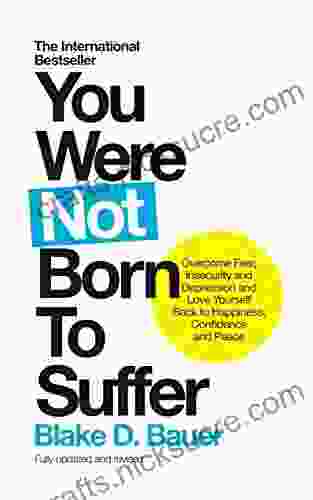The Mediterranean and the Atlantic from Prehistory to AD 1500

4.7 out of 5
| Language | : | English |
| File size | : | 280234 KB |
| Text-to-Speech | : | Enabled |
| Enhanced typesetting | : | Enabled |
| Word Wise | : | Enabled |
| Lending | : | Enabled |
| Print length | : | 627 pages |
| Screen Reader | : | Supported |
The Mediterranean and Atlantic regions have been interconnected and influential throughout history, playing a pivotal role in the development of human civilization. This article provides a comprehensive overview of these regions from prehistory to AD 1500, highlighting key themes and events that shaped their intertwined destinies.
1. Prehistory (c. 10,000 - c. 3000 BCE)
Maritime Trade and Cultural Exchange
During the Neolithic period, seafaring communities emerged around the Mediterranean and Atlantic coasts, establishing trade networks that facilitated the exchange of goods, ideas, and technologies. Archaeological evidence suggests that obsidian from the Aegean islands was traded as far as Egypt and Mesopotamia, while amber from the Baltic Sea made its way south to the Mediterranean.
Agricultural Innovations and Population Growth
The of agriculture in the Near East and North Africa during the Neolithic period led to a dramatic increase in food production, supporting population growth and the rise of settled communities. These communities developed sophisticated irrigation systems, cultivated new crops, and domesticated animals, laying the foundation for urban civilization.
2. The Bronze Age (c. 3000 - c. 1200 BCE)
Emergence of Civilizations
The Bronze Age witnessed the rise of powerful civilizations throughout the Mediterranean and Atlantic regions, including the Minoans on Crete, the Mycenaeans in Greece, and the Phoenicians in the Levant. These civilizations developed complex political systems, written languages, and advanced technologies.
Maritime Expansion and Colonialism
Phoenician seafarers played a dominant role in maritime trade during the Bronze Age, establishing colonies along the Mediterranean coast and beyond. They founded the city of Carthage in North Africa and explored the Atlantic Ocean, reaching as far as the Canary Islands.
3. The Iron Age (c. 1200 - c. 500 BCE)
Greek and Roman Expansion
The Iron Age marked a period of significant political and cultural transformation, particularly in the Mediterranean. The Greeks emerged as a major maritime power, colonizing the shores of the Mediterranean and Black Seas. The Roman Republic later conquered much of the Mediterranean region, establishing a vast empire that extended from Britain to North Africa.
Technological Advancements
The Iron Age witnessed the development of new technologies that revolutionized warfare, transportation, and communication. The Greeks and Romans invented the trireme, a fast and maneuverable warship, which gave them a significant advantage in naval warfare. They also improved road systems, facilitating the movement of goods and armies.
4. The Middle Ages (c. 500 - c. 1500 CE)
Arab Expansion and Cultural Exchange
The spread of Islam in the 7th century CE had a profound impact on the Mediterranean and Atlantic regions. Arab armies conquered vast territories, including North Africa, Spain, and parts of Italy. This led to a vibrant exchange of ideas and technologies between the Islamic world and Europe.
Crusades and the Reconquista
The Crusades, a series of religious wars launched by Christian Europe, aimed to recapture the Holy Land from Muslim control. While ultimately unsuccessful, the Crusades brought about significant cultural and economic changes in the Mediterranean.
European Exploration and the Age of Discovery
In the late Middle Ages, European seafarers began to explore the Atlantic Ocean, driven by a desire for trade and expansion. Portuguese and Spanish navigators discovered new lands in West Africa and the Americas, initiating the Age of Discovery.
From prehistory to AD 1500, the Mediterranean and Atlantic regions experienced a remarkable journey of cultural exchange, political transformations, technological advancements, and maritime exploration. These regions played a pivotal role in shaping the course of human civilization, fostering connections between diverse peoples and laying the groundwork for the interconnected world we live in today.
4.7 out of 5
| Language | : | English |
| File size | : | 280234 KB |
| Text-to-Speech | : | Enabled |
| Enhanced typesetting | : | Enabled |
| Word Wise | : | Enabled |
| Lending | : | Enabled |
| Print length | : | 627 pages |
| Screen Reader | : | Supported |
Do you want to contribute by writing guest posts on this blog?
Please contact us and send us a resume of previous articles that you have written.
 Fiction
Fiction Non Fiction
Non Fiction Romance
Romance Mystery
Mystery Thriller
Thriller SciFi
SciFi Fantasy
Fantasy Horror
Horror Biography
Biography Selfhelp
Selfhelp Business
Business History
History Classics
Classics Poetry
Poetry Childrens
Childrens Young Adult
Young Adult Educational
Educational Cooking
Cooking Travel
Travel Lifestyle
Lifestyle Spirituality
Spirituality Health
Health Fitness
Fitness Technology
Technology Science
Science Arts
Arts Crafts
Crafts DIY
DIY Gardening
Gardening Petcare
Petcare Ian Mcleod
Ian Mcleod Scott Parsons
Scott Parsons Debbie Elicksen
Debbie Elicksen Gladys Chepkirui Ngetich
Gladys Chepkirui Ngetich Virginia Smith Harvey
Virginia Smith Harvey Alifya And Umesh Mohite
Alifya And Umesh Mohite Richard Langer
Richard Langer Brad Brewer
Brad Brewer Horace Kephart
Horace Kephart Emily K Neuburger
Emily K Neuburger Ned Johnson
Ned Johnson Tom Jackson
Tom Jackson Helen C Rountree
Helen C Rountree Pamela Druckerman
Pamela Druckerman Dan Shideler
Dan Shideler Lynn Alley
Lynn Alley Kirk Bailey
Kirk Bailey Adam Lashinsky
Adam Lashinsky Rory Miller
Rory Miller Jessie Hartland
Jessie Hartland Charles H Kraft
Charles H Kraft Todd Graves
Todd Graves Daniel Carter Beard
Daniel Carter Beard Cornel West
Cornel West Michelle Obama
Michelle Obama Jeremy Roenick
Jeremy Roenick Adam Lazarus
Adam Lazarus Steve Griffith
Steve Griffith Ann Mariah Cook
Ann Mariah Cook Gail Buckland
Gail Buckland Mary Wong
Mary Wong Betsy Miller
Betsy Miller Gisle Solhaug
Gisle Solhaug Richard Martin
Richard Martin Gregor Clark
Gregor Clark Amelia Whitmore
Amelia Whitmore Claire Ahn
Claire Ahn Martha C Nussbaum
Martha C Nussbaum Colin Hunter
Colin Hunter Abigail Pogrebin
Abigail Pogrebin Carmen Moreno
Carmen Moreno Abinash Das
Abinash Das Genius Reads
Genius Reads Chashiree M
Chashiree M Mark Strom
Mark Strom P S Page
P S Page David G Brown
David G Brown Jon Butterworth
Jon Butterworth Michael Gruenbaum
Michael Gruenbaum Thomas Wilson
Thomas Wilson Paula Deen
Paula Deen Chella Quint
Chella Quint Laurence Steinberg
Laurence Steinberg Miriam Forman Brunell
Miriam Forman Brunell Gerald A Voorhees
Gerald A Voorhees Mark Januszewski
Mark Januszewski Judi Kesselman Turkel
Judi Kesselman Turkel Rick Sekuloski
Rick Sekuloski David Winner
David Winner Barbara A Lewis
Barbara A Lewis Arthur Turrell
Arthur Turrell Baba Ifa Karade
Baba Ifa Karade Curt Lader
Curt Lader Barry Robinson
Barry Robinson Stephen A Mitchell
Stephen A Mitchell Tony Soper
Tony Soper Christopher S Stewart
Christopher S Stewart Martha Gellhorn
Martha Gellhorn Shari Eskenas
Shari Eskenas Gary Sakuma
Gary Sakuma Abridged Ed Edition Kindle Edition
Abridged Ed Edition Kindle Edition Louise Pickford
Louise Pickford Kenn Kaufman
Kenn Kaufman Gil Capps
Gil Capps Lisa M Given
Lisa M Given Abdul Foster
Abdul Foster Ian Davis
Ian Davis Lucy Letcher
Lucy Letcher Cassandra Eason
Cassandra Eason Adam Frank
Adam Frank Dick Edie
Dick Edie Al Yellon
Al Yellon Alvin Alexander
Alvin Alexander James Surowiecki
James Surowiecki Lynn Rush
Lynn Rush Marc Dando
Marc Dando Kevin A Morrison
Kevin A Morrison Charles C Patrick
Charles C Patrick G Bailey
G Bailey Ryan Smithson
Ryan Smithson Steve Rosenberg
Steve Rosenberg Cosmas Inyang
Cosmas Inyang Maureen Duffin Ward
Maureen Duffin Ward Ann Frederick
Ann Frederick Eugene H Merrill
Eugene H Merrill Adam H Balen
Adam H Balen Vikas Kakwani
Vikas Kakwani Sorin Dumitrascu
Sorin Dumitrascu Lynn E Ponton
Lynn E Ponton Aaron Lee Johnson
Aaron Lee Johnson Aliza Green
Aliza Green Gerry Donohue
Gerry Donohue Scott Butler
Scott Butler Miranda Kenneally
Miranda Kenneally Megan Lane
Megan Lane Al Desetta
Al Desetta Richelle Mead
Richelle Mead Casey Robson
Casey Robson Andrew Campanella
Andrew Campanella Benjamin Roberts
Benjamin Roberts Chuck Callaway
Chuck Callaway George J Hademenos
George J Hademenos Kel Carpenter
Kel Carpenter Steven Alan Childress
Steven Alan Childress Carl Jones
Carl Jones Mary Roach
Mary Roach Kathy Koch Phd
Kathy Koch Phd Deborah Beck Busis
Deborah Beck Busis Collins Kids
Collins Kids Sasha Abramsky
Sasha Abramsky Aaron Oster
Aaron Oster Beth Newell
Beth Newell Natasha Preston
Natasha Preston Sheri Van Dijk
Sheri Van Dijk Jay Ruud
Jay Ruud Scott Shaw
Scott Shaw Tom Rosenbauer
Tom Rosenbauer Dan Werb
Dan Werb Abbi Glines
Abbi Glines Abby Hafer
Abby Hafer Wayne Westcott
Wayne Westcott Scott Carney
Scott Carney William Deresiewicz
William Deresiewicz Michelle Hodkin
Michelle Hodkin Terry Palechuk
Terry Palechuk Adam Koch
Adam Koch Rose Ann Hudson
Rose Ann Hudson Sean Lewis
Sean Lewis Carl Vernon
Carl Vernon Barbara Fox
Barbara Fox Aaron Graves
Aaron Graves Brian Hoggard
Brian Hoggard John Hancock
John Hancock Elisabetta Viggiani
Elisabetta Viggiani Eduardo Duran
Eduardo Duran Carolyn Jessop
Carolyn Jessop David Rensin
David Rensin Claire Santry
Claire Santry Abhishek V R
Abhishek V R Laura Sebastian
Laura Sebastian Debbie Ford
Debbie Ford Peter Sagal
Peter Sagal Achille Rubini
Achille Rubini Bruce Van Brunt
Bruce Van Brunt Tom Migdalski
Tom Migdalski Tali Edut
Tali Edut Thubten Yeshe
Thubten Yeshe Ben Cohen
Ben Cohen Jack Moore
Jack Moore Tim Jarvis
Tim Jarvis Adam Freeman
Adam Freeman Abby Haight
Abby Haight Vivian Gussin Paley
Vivian Gussin Paley Jennifer Finney Boylan
Jennifer Finney Boylan Jim Morekis
Jim Morekis Robert Allans
Robert Allans Tomos Forrest
Tomos Forrest Jasna Tuta
Jasna Tuta Kate Rope
Kate Rope Gayle Forman
Gayle Forman Lin Wellford
Lin Wellford Charles Fernyhough
Charles Fernyhough Michael Crawley
Michael Crawley Paul Mclerran
Paul Mclerran Chris Worfolk
Chris Worfolk Kayla Cottingham
Kayla Cottingham Abbas Kazerooni
Abbas Kazerooni Alicia Silverstone
Alicia Silverstone Rachel Caine
Rachel Caine Winifred Conkling
Winifred Conkling Blake D Bauer
Blake D Bauer Stacy Eaton
Stacy Eaton Lisa M Schab
Lisa M Schab Brian Greene
Brian Greene Pat Chargot
Pat Chargot Sally Clarkson
Sally Clarkson Adam Enaz
Adam Enaz Ada Calhoun
Ada Calhoun Domenica Marchetti
Domenica Marchetti Justin Driver
Justin Driver Chaz Scoggins
Chaz Scoggins Charlie Barker
Charlie Barker Monica Sorrenson
Monica Sorrenson Stuart Firestein
Stuart Firestein John D Gordon
John D Gordon Suzanne Corkin
Suzanne Corkin Agustin Fuentes
Agustin Fuentes Adam D Scott
Adam D Scott Sarah Maslin Nir
Sarah Maslin Nir Jennifer Greene
Jennifer Greene Lisa Robertson
Lisa Robertson Lee Sandlin
Lee Sandlin T L Christianson
T L Christianson Abbey Curran
Abbey Curran Adam Kimelman
Adam Kimelman Ken Springer
Ken Springer Jason Korol
Jason Korol Andy Dumas
Andy Dumas Amber Fox
Amber Fox Pearson Education
Pearson Education Mikki Daughtry
Mikki Daughtry Rolf Mowatt Larssen
Rolf Mowatt Larssen Lucio Russo
Lucio Russo Vivienne Sanders
Vivienne Sanders Andrew Skurka
Andrew Skurka Jeff Bauman
Jeff Bauman Jennifer Shannon
Jennifer Shannon Maxine Levaren
Maxine Levaren Steve Mcmenamin
Steve Mcmenamin Christopher Pike
Christopher Pike Adam Braus
Adam Braus Louise Thaden
Louise Thaden Jacob Neumann
Jacob Neumann Gavin D J Harper
Gavin D J Harper Nick Holt
Nick Holt Lisa Pineda
Lisa Pineda Randi Hutter Epstein
Randi Hutter Epstein Charles L Byrne
Charles L Byrne Teresa Finney
Teresa Finney Christopher Knight
Christopher Knight Rob Gray
Rob Gray Matt Owens
Matt Owens Allan Sand
Allan Sand Achref Hassini
Achref Hassini Drew Harris
Drew Harris Jenny Han
Jenny Han Lindsey Ellison
Lindsey Ellison Abigail Melton
Abigail Melton Kaylynn Flanders
Kaylynn Flanders Lisa Heffernan
Lisa Heffernan Adam J Cox
Adam J Cox Lisa Latimer
Lisa Latimer Kim Gosselin
Kim Gosselin Brian L Gorman
Brian L Gorman Al Barkow
Al Barkow Linda Sarris
Linda Sarris James Heberd
James Heberd Eze Ugbor
Eze Ugbor T L Lowery
T L Lowery William Hamilton Gibson
William Hamilton Gibson John Kean
John Kean Alicia C Simpson
Alicia C Simpson Zoe Hamlet Silva
Zoe Hamlet Silva Sherri Granato
Sherri Granato Renda Dionne Madrigal
Renda Dionne Madrigal Phong Thong Dang
Phong Thong Dang Erik Scott De Bie
Erik Scott De Bie Meg Keys
Meg Keys Abigail Owen
Abigail Owen Abraham Silberschatz
Abraham Silberschatz David Lipsky
David Lipsky Stephen Abbott
Stephen Abbott Jimmy Houston
Jimmy Houston Jack Cavanaugh
Jack Cavanaugh Catherine Ryan Hyde
Catherine Ryan Hyde Og Mandino
Og Mandino Rex Ogle
Rex Ogle Richard Sattora
Richard Sattora Neil Oliver
Neil Oliver Douglas W Hubbard
Douglas W Hubbard Deborah Madison
Deborah Madison Harley Rustad
Harley Rustad Taylan Hoca
Taylan Hoca Bill Mckibben
Bill Mckibben Tom Mccarthy
Tom Mccarthy Phil Gaimon
Phil Gaimon Dr Robert Pasahow
Dr Robert Pasahow Bathroom Readers Institute
Bathroom Readers Institute Adam Becker
Adam Becker R L Stine
R L Stine E P Marcellin
E P Marcellin Jennifer Ackerman
Jennifer Ackerman Robert Fritz
Robert Fritz Leigh Bardugo
Leigh Bardugo Jessica Hepburn
Jessica Hepburn Devika Primic
Devika Primic Carley Roney
Carley Roney Annie Nicholas
Annie Nicholas Sheila Lamb
Sheila Lamb Kristin Berry
Kristin Berry Arthur Atchabahian
Arthur Atchabahian Timothy Phelps
Timothy Phelps Daphne Poltz
Daphne Poltz Katrina Kahler
Katrina Kahler Ken Retallic
Ken Retallic Ed Engle
Ed Engle Xiuhtezcatl Martinez
Xiuhtezcatl Martinez Aaron Reed Msn Crna
Aaron Reed Msn Crna Goodman Publishing
Goodman Publishing Stefan Ball
Stefan Ball Clara Shaper
Clara Shaper Tim Larkin
Tim Larkin Laura Peyton Roberts
Laura Peyton Roberts Irakli Makharadze
Irakli Makharadze Walter Browder
Walter Browder Sarah Moore
Sarah Moore Amber Domoradzki
Amber Domoradzki David Feddes
David Feddes Abby Sunderland
Abby Sunderland M J Parisian
M J Parisian Alexander Nehamas
Alexander Nehamas Jennifer L Hunt
Jennifer L Hunt Michael Baigent
Michael Baigent Lenyfer Garrido
Lenyfer Garrido Andrea M Nelson Royes
Andrea M Nelson Royes Laura Ray
Laura Ray Ron Jones
Ron Jones Adam J Rosh
Adam J Rosh Abigail Hing Wen
Abigail Hing Wen Abigail Marshall
Abigail Marshall Aaron Reed
Aaron Reed Sean Mcmanus
Sean Mcmanus Susan Zeppieri
Susan Zeppieri Abby Mcallister
Abby Mcallister Stephanie Puglisi
Stephanie Puglisi Peter Harrison
Peter Harrison J Robert King
J Robert King Michael L Bloomquist
Michael L Bloomquist Glen Finland
Glen Finland Emily Suzanne Clark
Emily Suzanne Clark Adam Boduch
Adam Boduch Sharon Boyd
Sharon Boyd Abigail Hair
Abigail Hair Jay Dawes
Jay Dawes Peter David
Peter David Abu Mussab Wajdi Akkari
Abu Mussab Wajdi Akkari Gloria Atanmo
Gloria Atanmo Dawson Church
Dawson Church Elena Aguilar
Elena Aguilar Moon Ho Jung
Moon Ho Jung Linford Stutzman
Linford Stutzman Emma Crewe
Emma Crewe Garrett Mcnamara
Garrett Mcnamara Liza Angela
Liza Angela Christopher Black
Christopher Black Sheldon Axler
Sheldon Axler Kit Bauman
Kit Bauman Hans C Ohanian
Hans C Ohanian John Taylor
John Taylor Darrin Bergman
Darrin Bergman Melodie M Davis
Melodie M Davis Robert Reid
Robert Reid Anthony Wilkenson
Anthony Wilkenson Aaron Blight
Aaron Blight Aaron James
Aaron James Matt Warshaw
Matt Warshaw Marlene Wagman Geller
Marlene Wagman Geller Sam Jarman
Sam Jarman Erika Fatland
Erika Fatland Jane Gross
Jane Gross O Thomas Gift
O Thomas Gift Dan Morris
Dan Morris Heather Lynn
Heather Lynn Ron Hotchkiss
Ron Hotchkiss Emily J Taylor
Emily J Taylor Bill Loguidice
Bill Loguidice Asato Asato
Asato Asato Israel Finkelstein
Israel Finkelstein Hillary Allen
Hillary Allen Stephanie Zeiss
Stephanie Zeiss Laura Gao
Laura Gao Adam Galinsky
Adam Galinsky Man Kam Lo
Man Kam Lo Jeremy Miles
Jeremy Miles Winston Chang
Winston Chang Conrad Bauer
Conrad Bauer Garo Yepremian
Garo Yepremian David Warriner
David Warriner Zoyla Arana
Zoyla Arana David Simon
David Simon Corinne Andrews
Corinne Andrews Scott Meyers
Scott Meyers Felice Fox
Felice Fox Rachael Ray
Rachael Ray Farah Shabazz Ii
Farah Shabazz Ii Christophe Jaffrelot
Christophe Jaffrelot Paul Chiasson
Paul Chiasson Ralph Villiger
Ralph Villiger Adam Chandler
Adam Chandler Nancy Mohrbacher
Nancy Mohrbacher Phil Boyle
Phil Boyle Uri Bram
Uri Bram Jim Willis
Jim Willis Barbara Natterson Horowitz
Barbara Natterson Horowitz Programming Languages Academy
Programming Languages Academy Aiden Thomas
Aiden Thomas Aaron J Perry
Aaron J Perry Christina Hoff Sommers
Christina Hoff Sommers Norton Juster
Norton Juster Fumio Sasaki
Fumio Sasaki Axie Oh
Axie Oh Sophie Mccartney
Sophie Mccartney Aaron Mccargo
Aaron Mccargo Aaron Hahn
Aaron Hahn Brigitte Jordan
Brigitte Jordan Christopher Monahan
Christopher Monahan Achusim Michael
Achusim Michael Helen Scales
Helen Scales Lois G Schwoerer
Lois G Schwoerer Steve Roper
Steve Roper Al Baird
Al Baird Michael Johnson
Michael Johnson Stephen R Lawhead
Stephen R Lawhead An American Citizen
An American Citizen Katie Lear
Katie Lear Abigail Alling
Abigail Alling Reinette Biggs
Reinette Biggs Tomi Adeyemi
Tomi Adeyemi Sissy Goff
Sissy Goff Joy Neighbors
Joy Neighbors Lillian Cumic
Lillian Cumic Abigail Tucker
Abigail Tucker Marvin Valerie Georgia
Marvin Valerie Georgia Edward J Larson
Edward J Larson Randy Walker
Randy Walker Randall Hyde
Randall Hyde Stephen Gray
Stephen Gray Charles Thomas Jr
Charles Thomas Jr Andy Couturier
Andy Couturier Amby Burfoot
Amby Burfoot Dmv Test Bank
Dmv Test Bank Jeremy Shinewald
Jeremy Shinewald Jeremy Paxman
Jeremy Paxman Shuai Huang
Shuai Huang Craig Timberg
Craig Timberg Richard Lighthouse
Richard Lighthouse Maya Lang
Maya Lang Michael Egan
Michael Egan Chris Jericho
Chris Jericho Fred Fields
Fred Fields Sarah K L Wilson
Sarah K L Wilson Vince Kotchian
Vince Kotchian Caroline Kaufman
Caroline Kaufman Sarah Luddington
Sarah Luddington Roman Dial
Roman Dial Paul Schneider
Paul Schneider Laurie Chaikind Mcnulty Lcsw C
Laurie Chaikind Mcnulty Lcsw C Marie Cirano
Marie Cirano Bobby Reyes
Bobby Reyes Shannon Hale
Shannon Hale Achim K Krull
Achim K Krull Stephen Brennan
Stephen Brennan Susan Walton
Susan Walton Aaron Mahnke
Aaron Mahnke Irene Lewis Mccormick
Irene Lewis Mccormick Michel Roy
Michel Roy George John Romanes
George John Romanes Tamora Pierce
Tamora Pierce Ronald Kaine
Ronald Kaine John Caig
John Caig Lavinia Collins
Lavinia Collins Barry Dainton
Barry Dainton Barbara Decker
Barbara Decker Alan Robertson
Alan Robertson Abdelkader Nouiri
Abdelkader Nouiri Iain Highfield
Iain Highfield Larry Carpenter
Larry Carpenter Chiara Giuliani
Chiara Giuliani Sam J Miller
Sam J Miller Seth Kugel
Seth Kugel Rania Abouzeid
Rania Abouzeid Papus
Papus Ariana Eagleton
Ariana Eagleton Adam Benshea
Adam Benshea Rosie Pope
Rosie Pope Kemi Iwalesin
Kemi Iwalesin Brandon Neice
Brandon Neice Joe Simpson
Joe Simpson Christian Beamish
Christian Beamish Ilsa J Bick
Ilsa J Bick Michael N Mitchell
Michael N Mitchell
Light bulbAdvertise smarter! Our strategic ad space ensures maximum exposure. Reserve your spot today!
 F. Scott FitzgeraldFollow ·19.5k
F. Scott FitzgeraldFollow ·19.5k Henry JamesFollow ·3.4k
Henry JamesFollow ·3.4k Ted SimmonsFollow ·4.3k
Ted SimmonsFollow ·4.3k John Dos PassosFollow ·9.3k
John Dos PassosFollow ·9.3k Neal WardFollow ·7.6k
Neal WardFollow ·7.6k Cooper BellFollow ·13.2k
Cooper BellFollow ·13.2k Joseph ConradFollow ·8.9k
Joseph ConradFollow ·8.9k David BaldacciFollow ·12.1k
David BaldacciFollow ·12.1k

 Doug Price
Doug PriceTracing the Evolution of Modern Psychoanalytic Thought:...
Psychoanalysis, once considered a radical...

 Devin Ross
Devin RossThe Digital Role Playing Game Approaches To Digital Game...
These are just a few of the many...

 F. Scott Fitzgerald
F. Scott FitzgeraldHistory from Things: Essays on Material Culture
History from Things:...

 Percy Bysshe Shelley
Percy Bysshe ShelleyThe Priest Lake Girl and the Cabin of Love: A True Story...
The Murder On...

 Isaiah Powell
Isaiah PowellThe Golf Mystic: Dick Edie's Unconventional Approach to...
In the annals of golf history, the name Dick...
4.7 out of 5
| Language | : | English |
| File size | : | 280234 KB |
| Text-to-Speech | : | Enabled |
| Enhanced typesetting | : | Enabled |
| Word Wise | : | Enabled |
| Lending | : | Enabled |
| Print length | : | 627 pages |
| Screen Reader | : | Supported |














